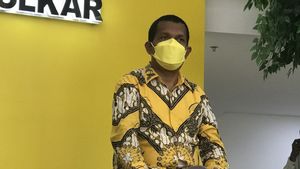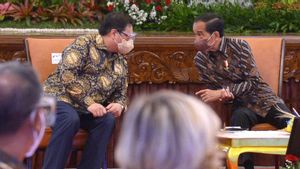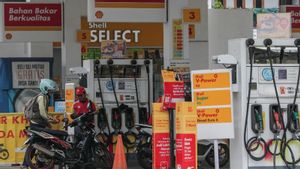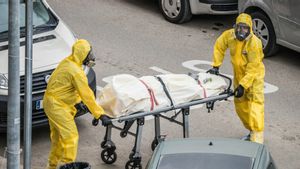JAKARTA - The development of COVID-19 cases in Indonesia has shown significant improvement. This is a positive development, so it is hoped that the handling of health and the recovery of the national economy will gradually improve. The government also continues to maintain a balance between health care and the economy.
The performance of handling COVID-19 and the speed of vaccination in Indonesia are recognized by the world. According to the WHO in the "COVID-19 Situation Report - 79" as of November 3, 2021, all provinces in Indonesia are at the Community Transmission Level 1 or low transmission rate.
Meanwhile, based on the NIKKEI COVID-19 Recovery Index, Indonesia's performance ranks 41 out of 121 countries, the best among ASEAN countries. This ranking continues to improve from the previous rank of 54.
The progress of vaccination achievement also shows things that are getting better. Whereas of November 10, 2021, a total of 209.6 million doses have been injected.
Thus, 61.2 percent of targets have been vaccinated at dose 1 and 38.9 percent of targets have been fully vaccinated. The government will continue to encourage the achievement of this vaccination to more quickly achieve herd immunity.
Macroeconomic conditions also show good resilience, until early November 2021 economic growth was recorded at 3.51 percent (YoY) in the third quarter of 2021.
"The government is optimistic that in 2021, Indonesia's full-year growth in the range of 3.7 to 4.0 percent can be achieved", said Coordinating Minister for Economic Affairs, Airlangga Hartarto, at the Kadin Indonesia webinar with the theme "Strategy for the Recovery of the Transportation Business in Indonesia through Bank Financing and Non-Bank", last Thursday, November 11.
Meanwhile, the government also estimates that economic growth in 2022 can reach 5.2 percent, which is in line with projections from various international institutions.
"The momentum for economic recovery that continues until the third quarter of 2021 must be maintained because this is an important key so that our economy can continue to recover more quickly", said Coordinating Minister Airlangga.
The realization of the PEN (National Economic Recovery) Program up to November 5, 2021, has reached IDR 456.35 trillion or 61.3 percent of the IDR 744.77 trillion ceilings. The PEN program will continue to be optimized to support people's livelihoods and purchasing power as well as maintain business continuity and restore the economy in various sectors, including the transportation sector.
SEE ALSO:
A series of fiscal incentives have also been provided to boost the performance of the business sector. Article 22 Import Income Tax incentives, Article 25 Income Tax, VAT refunds, and lower corporate income tax rates have been provided to assist liquidity and business continuity. The government has also provided fiscal incentives to sectors that have a high multiplier effect on the economy, such as the property and automotive sectors.
Most of the incentives for the transportation and warehousing sector are provided to maintain cash flow and prevent the wave of layoffs, including the extension of tax incentives, restructuring of credit settlements for businesses in the transportation sector, both in the banking sector and non-banking financial services institutions, as well as salary subsidy assistance/wages.
"The transportation and warehousing sector is an enabler for other sectors. The recovery of this sector will accelerate the recovery of various economic activities in various other sectors. For this reason, the government will continue to synergize with all stakeholders in supporting the acceleration of recovery in the national transportation and warehousing sector", concluded Coordinating Minister for Airlangga.
The English, Chinese, Japanese, Arabic, and French versions are automatically generated by the AI. So there may still be inaccuracies in translating, please always see Indonesian as our main language. (system supported by DigitalSiber.id)














